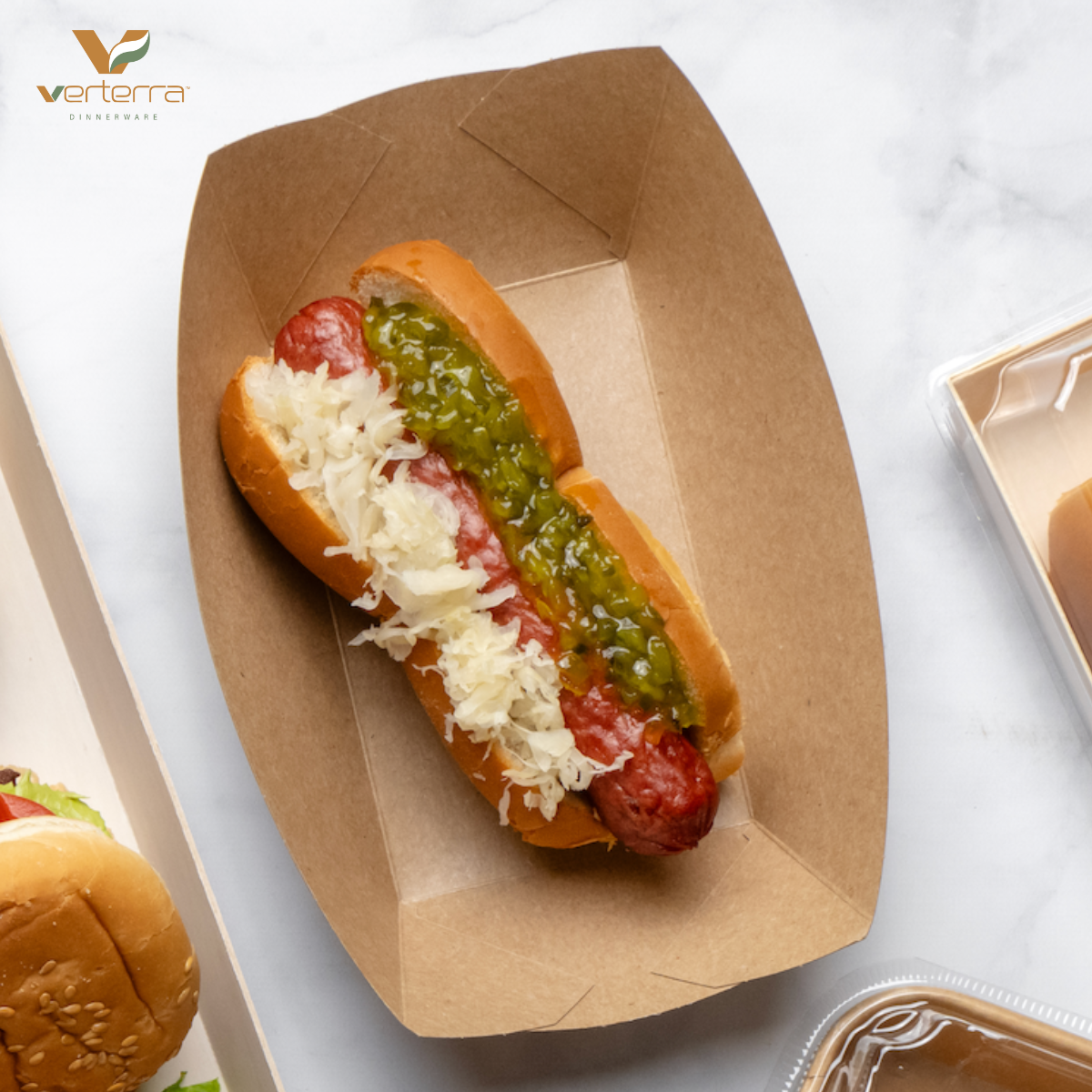
Legislating Against Plastic: What F&B Businesses Should Know
Plastic pollution and its detrimental effects on the environment have become a global concern. In the United States, legislative efforts are underway to address this issue. The various proposed bills and regulations aim to reduce plastic use, curb climate change, and promote a shift toward sustainable alternatives. For food and beverage businesses, these legislative changes could have significant implications, potentially affecting the cost and availability of plastic and paper products. In this article, we'll explore key legislative initiatives and discuss the potential impact on the F&B industry so you stay informed and empowered.
-
Strategy for Plastics Innovation
This initiative seeks to accelerate innovations in plastic recycling technologies. While this program primarily targets technology development, its success could result in more sustainable and cost-effective plastic recycling methods. For F&B businesses, this could mean a shift toward more recyclable and eco-friendly packaging materials.
-
Draft National Strategy to Prevent Plastic Pollution
This strategy outlines potential actions where the United States Environmental Protection Agency (EPA) works with partners in preventing plastic pollution. While this strategy focuses on reducing plastic pollution at the source, it could lead to stricter regulations on plastic production and disposal.
The strategy emphasizes identifying single-use, unrecyclable, or frequently littered plastic products and finding alternative materials, products, or systems with fewer environmental impacts. For F&B businesses, this could mean reevaluating packaging choices and exploring eco-friendly alternatives like compostable containers and utensils.
The National Strategy to Prevent Plastic Pollution also aims to Improve Post-Use Materials Management and suggests the use of Composting Certified Compostable Products as a potential alternative to plastic products. The F&B industry can step in by adopting certified compostable packaging and products for items like disposable cutlery, plates, and food containers.
-
Protecting Communities from Plastics Act
Introduced by Representatives Huffman, Booker, Merkley, and Lowenthal, this legislation aims to tackle the plastic pollution crisis by cracking down on plastic production. It proposes stricter rules for petrochemical plants, aiming to safeguard the health of communities and reduce greenhouse gas emissions. This act could result in increased production costs for plastic-based products and potentially push businesses toward more sustainable alternatives.
-
Break Free From Pollution Act
Introduced by Senator Jeff Merkley, this bill aims to reduce and ban certain single-use plastic items. Businesses relying on single-use plastic products could face increased costs or the need to transition to more sustainable options. It's crucial for these businesses to consider long-term sustainability in their operations.
-
Plastic Pollution Prevention and Packaging Producer Responsibility Act
This state-level law aims to eliminate single-use plastic packaging and foodware, representing a significant step towards reducing plastic use.
As explained in an article by the American Bar Association, to combat the growing plastic crisis, this act has a comprehensive approach that includes a 25 percent reduction target for single-use plastic packaging and foodware by 2032, the implementation of pioneering statewide reuse and refill mandates, and the requirement for all single-use packaging to be recyclable or compostable, along with mandatory recycling rates reaching 65 percent by 2032. This legislation recognizes the need for a multifaceted strategy to address the challenges posed by single-use plastics and represents a significant shift in packaging materials and practices.
-
Federal Actions to Address Marine Plastic Pollution
The Save Our Seas Act has established the United States as a global leader in reducing plastic waste. It includes measures to ban single-use plastic bags, reducing government costs for plastic waste management6. This means that areas affected by these federal actions should prepare for potential disruptions in their supply chain and consider sustainable alternatives.
It is very clear that legislative initiatives aimed at reducing plastic use and addressing environmental concerns are progressing rapidly. Food and beverage businesses should anticipate potential changes in the availability and cost of plastic and paper products. To mitigate these challenges, transitioning to sustainable alternatives is a practical and responsible step forward. By doing so, businesses can contribute to a cleaner, greener future and position themselves for success in an evolving regulatory environment.
VerTerra Dinnerware: Your Sustainable Ally in Plastic Legislation Compliance
VerTerra Dinnerware, established in 2006, began and remains at the forefront of the compostable, disposable plateware and food packaging industry. Our mission and vision transformed the single-use, environmentally damaging food packaging industry by designing eco-friendly, biodegradable, and certified compostable dinnerware and packaging. These products are made from renewable resources, including fallen palm leaves, balsa wood tree trunks, bamboo, sugarcane, and more.
VerTerra's Palm Plates, Dinnerware From Fallen Leaves™, and our Balsa Wood Covered Trays are top choices for eco-conscious businesses in the take-out, catering, grab-and-go, or delivery industry. These sustainable alternatives not only align with anti-plastic regulations but also provide a premium, eco-friendly dining experience for customers while reducing environmental impact.
F&B businesses can take a proactive approach by making the switch to VerTerra's sustainable alternatives. By doing so, they can mitigate the potential disruptions caused by legislative changes and align with the global movement toward reducing plastic pollution and combating climate change
It's clear that legislative efforts are underway to combat the plastic pollution crisis, and these measures will have far-reaching effects on various industries, including food and beverage. Businesses that proactively embrace sustainable alternatives from VerTerra Dinnerware will not only contribute to a healthier planet but also ensure their own resilience in an evolving regulatory landscape. To learn more about VerTerra's product offerings and make the switch to sustainable plateware, servewaare and packaging, visit www.verterra.com.
Also in The Dirty Dish

The Ultimate Guide to Food Boats
Food boats are more than just a convenient way to serve meals—they're a game-changer for eco-conscious food service businesses. From casual cafés to high-end catering, these biodegradable, stylish, and durable containers offer a sustainable alternative to plastic. But not all food boats are created equal. Verterra takes it to the next level with their innovative, chemical-free designs made from renewable materials like kraft paper and balsa wood. Want to know why top chefs and event planners choose Verterra? Read on to discover the ultimate guide to food boats and how they can transform your food presentation while protecting the planet.

Sustainable Elegance: Why Verterra’s Covered Catering Trays And Grab & Go Trays Are a Culinary Game-Changer
If you’ve ever hosted an event, run a restaurant, or catered a wedding, you know how important it is to balance practicality with presentation. That’s where Verterra’s covered trays come in—a line of sustainable, compostable trays that deliver on functionality while looking absolutely stunning.

The Future of Food Packaging: Why Compostable is the New Standard
As the global focus on sustainability intensifies, food packaging has emerged as a critical area for innovation. Consumers, businesses, and policymakers are increasingly demanding eco-friendly solutions to mitigate environmental harm caused by single-use plastics. Compostable products, like those offered by Verterra, are setting a new standard for food packaging, blending functionality with sustainability. This shift isn't just a trend—it’s a necessity driven by consumer expectations and environmental realities.
